Eclipse-chasers were treated to one of the astronomical events of the year this morning, 25 October 2022, when a partial solar eclipse was visible from the UK and much of Europe.
During this spectacular event, the Moon covered part of the Sun, its silhouette taking a 'bite' out of the solar disc and producing a wonderful partial eclipse effect.
This solar eclipse was visible from much of Europe, as well as north Africa, the Middle East and western Asia.
It was not visible from the US, Canada, south American countries or Australia.
Sonia Turkington captured the below image of the eclipse from North Reddish, Stockport, UK, using a Sky-Watcher 10-inch Dobsonian a Google Pixel smartphone and Seymour 12” solar film.
She says: "This is my first shot with the Sun and a plane. I was trying to focus the Sun to take a photo, then a plane went by, so I just clicked quickly, so it’s not the best in focus.
"But I’m over the moon getting a partial collar eclipse with a plane"
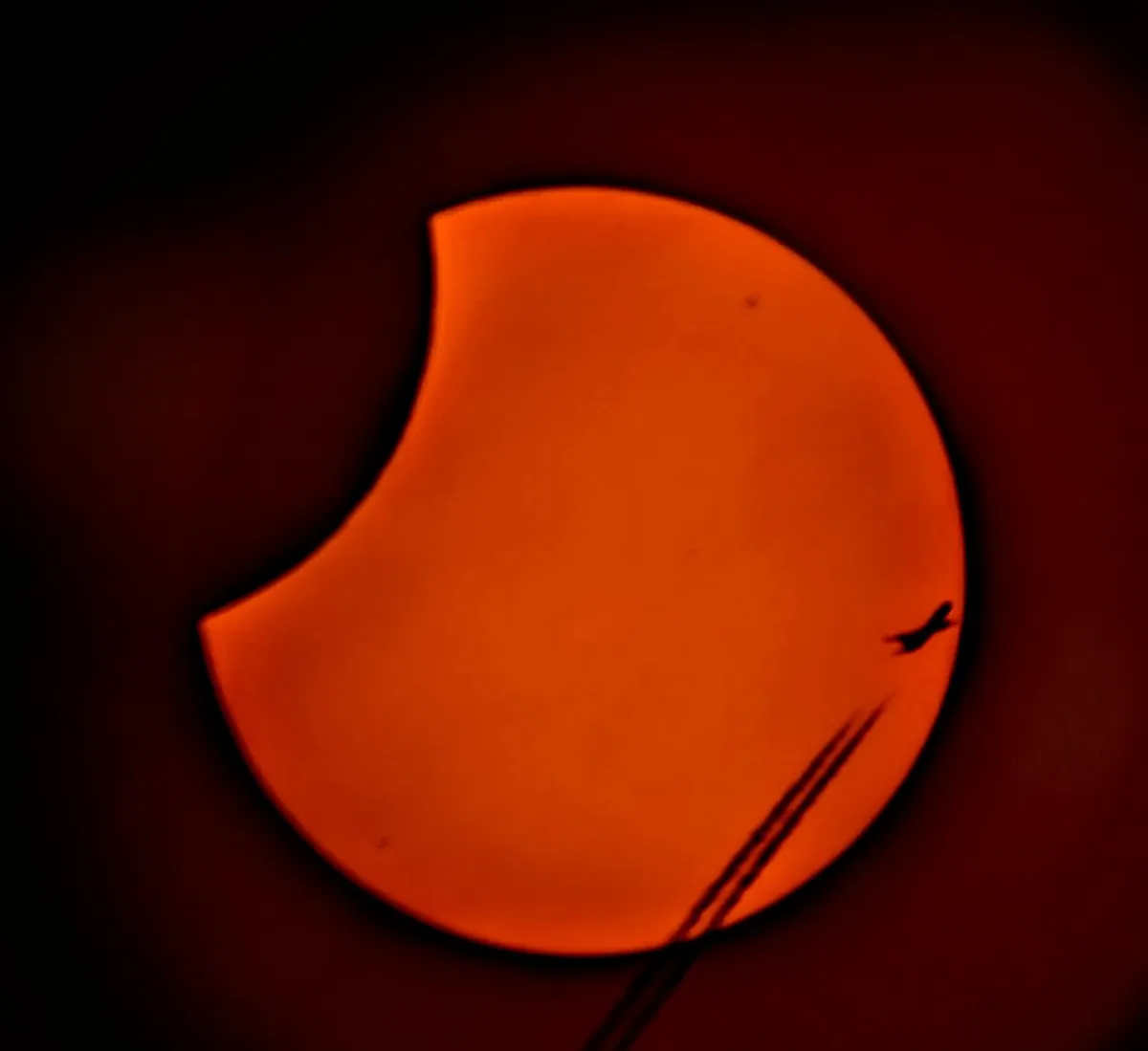
Sonia also captured this second image of the eclipse, this time minus the aeronautical photobomb.
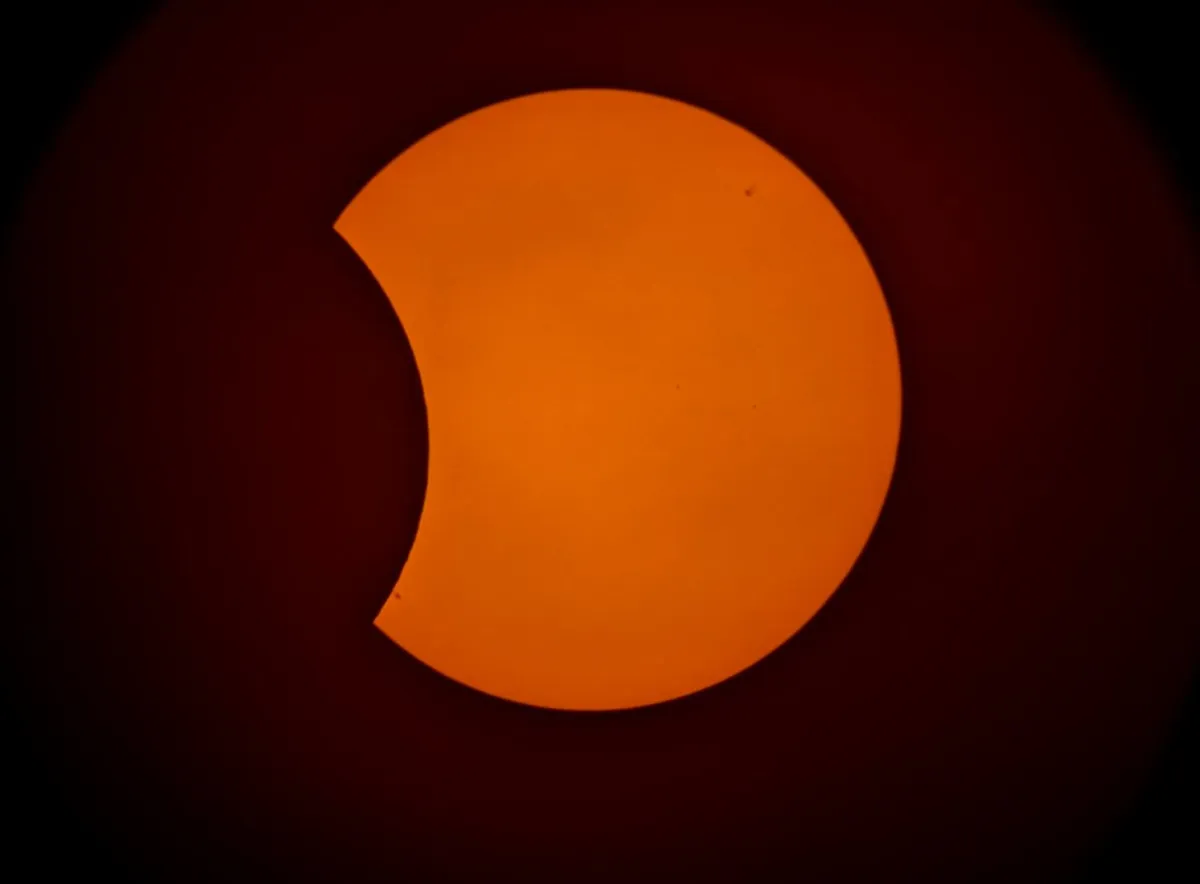
Norman Woolley captured this image of the eclipse using a handheld Canon EOS R6 DSLR camera with RF70-200 lens.
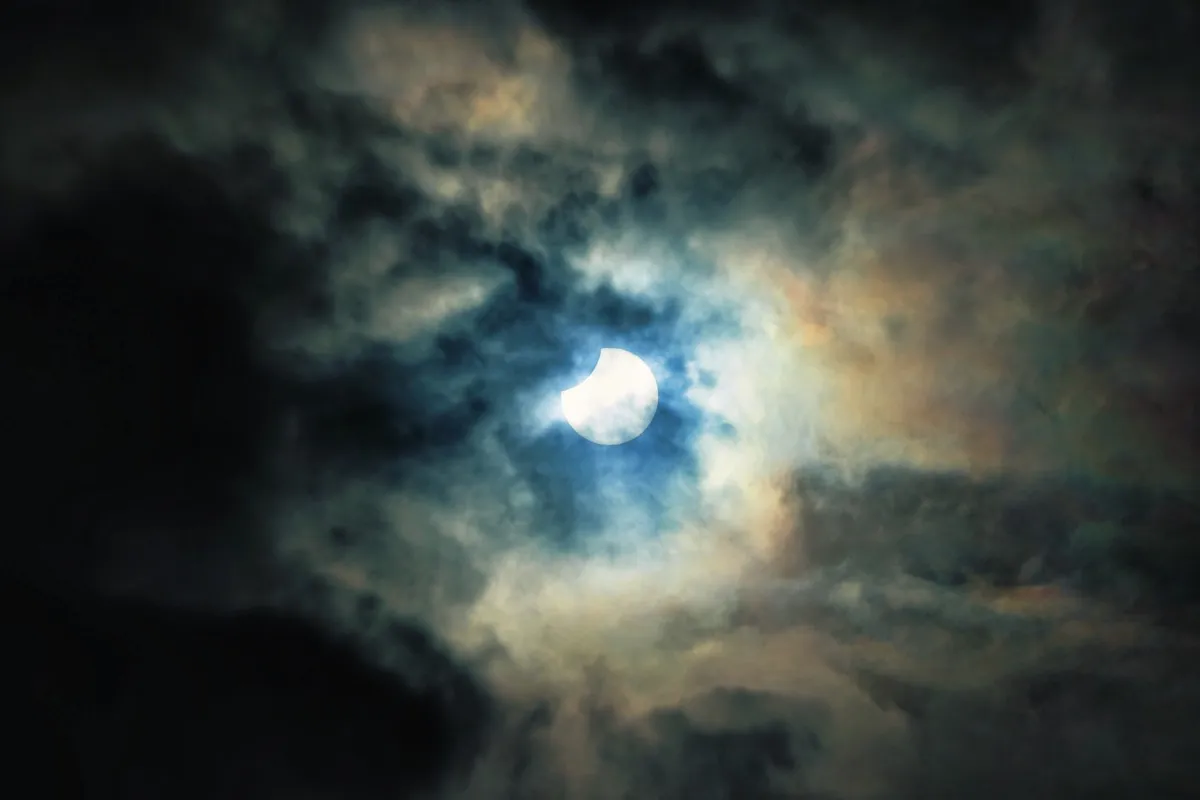
Prabhu S Kutti captured this image of the partial solar eclipse from Abu Dhabi with a ZWO 294MMPro camera, an Espirit 80mm app refractor, Antlia 36mm Red filter and Baader solar filter.
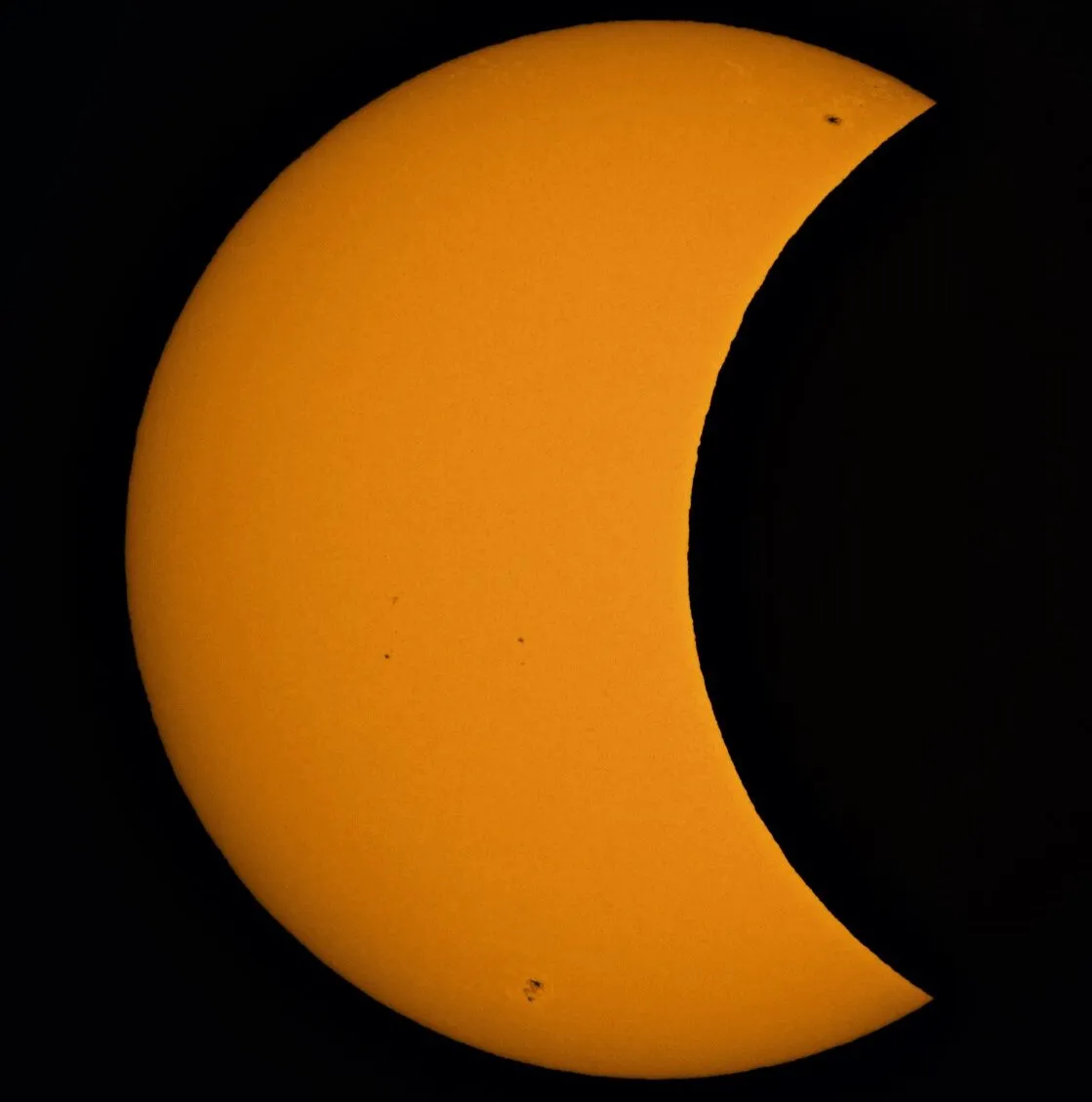
Find out when the next eclipse is visible
How to see the eclipse
Below are our instructions for viewing this morning's eclipse, as we reported it at the time.
Eclipse-watchers can expect to see the eclipse from around 10:00 BST (09:00 UT) until 12:00 BST (11:00 UT), with exact timings varying depending on where you're located.
The 25 October partial solar eclipse favours those living further east and to a lesser extent, further north.
For example, from Truro in Cornwall the event starts at 10:12 BST (09:12 UT) and ends at 11:38 BST (10:38 UT).
From Birmingham the eclipse starts at 10:07 BST (09:07 UT) and runs for 101 minutes.
York’s starts at 10:06 BST (09:06 UT), lasts for 106 minutes.
From the northeast tip of Shetland it begins at 10:01 BST (09:01 UT), runs for almost two hours.
If you're not able to get a view of the Sun on the day, or the sky is clouded over where you are, you can always watch the event and the build-up online, courtesy of the Royal Observatory Greenwich, who are streaming the event.
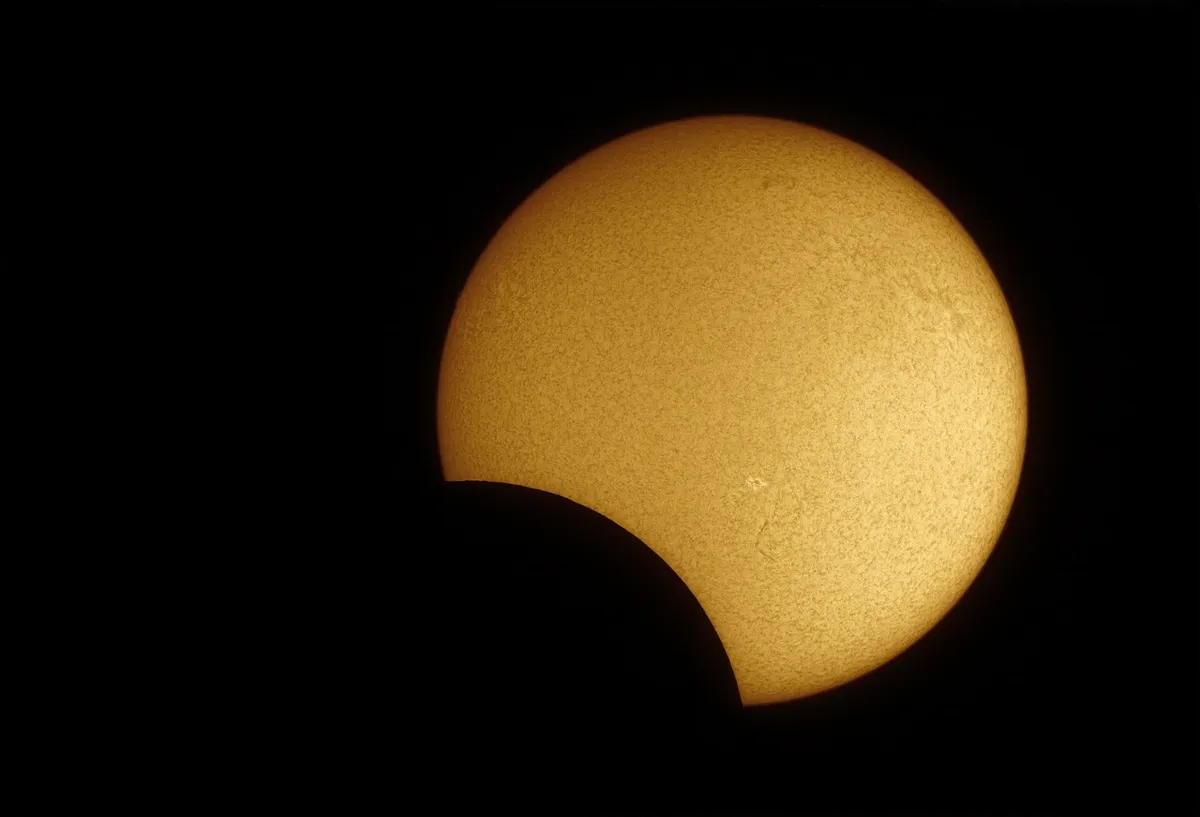
How to watch the solar eclipse online
The Royal Observatory Greenwich will be live-streaming the partial solar eclipse via the Annie Maunder Astrographic Telescope. The livestream is presented by ROG astronomer Jake Foster, so even if visibility is poor you can still catch up on what's going on.
Watch the eclipse via the view below.
What will we see during the eclipse?
Partial solar eclipses, as their name suggests, don’t cover the Sun’s disc completely. From the mainland UK, the greatest coverage will be 24.5% of the Sun's disc at best.
And because this is not a total solar eclipse, part of the Sun will always be visible, which means that viewers will need to protect their eyesight while observing the eclipse.
Appropriate filter protection must be used to keep your eyes and equipment safe.
Certified eclipse glasses will show the bite taken out of the Sun well.
Alternative low-tech visualisation methods include creating a pinhole or similar multi-holed projection setup.
For full advice on what you'll see and a variety of safe viewing methods, read Pete Lawrence's fantastic guide to observing the 25 October partial solar eclipse.
